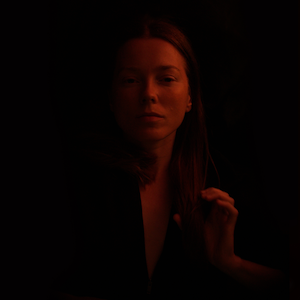Just before the due date for this column I headed over to one of my favourite festivals in one of my favourite cities, to see Marginal Consort. Marginal Consort are a four-piece collective from Japan: Kazuo Imai, Tomonao Koshikawa, Kei Shii, and Masami Tada. I have seen them twice before: at South London Gallery in 2013; in Stockholm in 2018. Both times I found an ecstatic in to a truly spatial music. It is music that is better described as a series of events rather than a linear passing of time.
Marginal Consort formed from the remains of the assemblage East Bionic Symphonia, a temporary group who released one album, which was essentially a recording of their graduate show as students who had studied under Fluxus artist and Taj Mahal Travellers member Takehisa Kosugi. They play in the round, or rather, a square, with each member set up in a corner and the sound mix for each strongest in their own zone. This means you can never experience an entire show; that the choice to move around as an audience member also changes the mix in dramatic ways. It means nobody ever really hears a full show; that it is always an explicitly individual experience of collective music making.
In Krakow, I was reacquainted with the volumes and energies they could reach – that it is not music of shushing and rustling, but the thwacking of folded cardboard bangers, or the caustic noise of a contact mic’d metal tape measure, or the resonant knocking of a ten-foot long ribbon of short bamboo poles knotted together like a string of DNA and wrestled with.
At the end of their three-hour marathons I always feel changed. I think: I have finally severed my connection to recorded music! I think: I will make sound with everything around me from now on! I still go to the merch desk to buy their releases, naturally. It does make me pause though; it is an alternative to the amassing of physical recorded music. It acts as a reminder that I could choose not to drop £30 on a new record, and instead spend the cash on a two-by-four, a length of drain pipe and the cheapest microphone going, and – the Fluxus training notwithstanding – have just as good a time.
Peter Gutteridge – Pure
(Superior Viaduct)
I have listened to this more than anything else this month by a factor of ten. Something unidentifiable and Pavlovian is triggered in me when I hear the specific jangle of guitar often found in that Dunedin sound – something like nostalgia for something I never knew; an abstracted comfort in sound. I never knew this one first time around: it was originally released on a cassette in 1989, the lone solo record by Peter Gutteridge, who was founder and/or member of: The Clean, The Chills, Snapper, and The Great Unwashed. ‘Hang On’ is my favourite: a puck of Suicide via Aoterea, complete with Alan Vega whoop. Unmissable.
Asha Sheshadri – Whiplash
(Recital)
Dressed up like Robert Ashley’s Automatic Writing, for a party that swaps his pencil scratches for digital whirrs suggestive of automated machinery, Asha Sheshadri’s Whiplash was recorded in “bedrooms, living rooms, libraries, bars, airplanes, backyards and parks across North America.” Sheshadri – who has released on Recital before in a duo called Open Corner with Christian Mirande, as well as on Entr’acte and other labels – doesn’t do the field recording thing of attempting to dissolve the recordist as documentarian, and is instead acutely present and self-observant, speaking quietly throughout (but still much louder than Ashley did). The album is delivered with a quote from the daddy of placemaking theory, Yi-Fu Tuan: “Place is security, space is freedom: we are attached to the one and long for the other. There is no place like home.” Home in the speech gathered here – some found, some capturing her speech – is not happy sanctuary, but a fugitive place; it eludes us and is in flux. Something about this record locates a loss: it is troublingly like watching myself fail to find calm. I often dream of the peace I remember finding in a pre-digital lifetime. My responsibilities were far less then, but this reminds me of the difference between what I knew as peace now, and then. There is also a track on here – ‘Shipwreck’ – that I find too affecting to listen to without emotionally bracing myself first, for the recording it contains of someone describing a metaphor they’d heard for surviving hard times: of holding on as the waves seem to overcome you.
Lucy Railton – Corner Dancer
(Modern Love)

I really liked Lucy Railton’s last solo album, Paradise 94 from 2018. Where that felt fairly musique concrete-adjacent in its concerns, Corner Dancer strikes more angular poses and is less obviously rooted in contemporary composition and New Music. It is mechanistic and minimal – coolly confident in its brutal streamlining of these cropped and puckered instants of sound. It’s like an Alexander Calder mobile – is all about weight, density, space and balance. When the cello does roll in against the crisp electronics in ‘Suzy In Spectrum’, the contrasting richness of its resonances are startling. Elsewhere, the cello is handled with a forensic choreography: plucked and bowed, with pitches bent as they fade away. Other sound sources are treated so much as to be unrecognisable: I think I heard a cat purring, a woman speaking, but these may have been ghosts in the listening ear.
Lori Vambe – Space-Time Dreamtime
(Strut)
A fusion between ethnographic recording and the lo-fi experiments of a committed DIY musician, this album collects three private press records from 1982 by instrument builder and artist Lori Vambe. Equally imbued by traditional drumming and the squat scene’s drum circles, the key sound source is Vambe’s self-designed instrument, the ‘drumgita’ – located in an obscure region of the lute family – which he constructed from a small drum bound to a short wooden neck and four strings (that look like they might be bass strings). It’s not particularly unusual, save for the fact that the idea for it came to him when he dreamed of playing of an instrument that extended from his own umbilical cord, and the ecstatic music he made with it would help him access the fourth dimension. The 20 plus tracks assembled here are minimal rhythmic scuzz-soused sketches and jams. Industrial clangs, whirrs and throbs from tape effects and the primitive construction of the instrument, with an occasional whiff of the hippy squat, and to me, a fair clang of Camberwell post-punk sunk in the subtext here too. It occupies an unusual space between cold storage and the hippy zone, and I’ve really loved its odd, scene-straddling energies.
Banana – Mind Sketches
(Conatala)
Banana – Some Kind Of Telling
(Infant Tree)
Snagged on two new releases this month by acts called Banana. Thought it was the same one doing a turn on two different underground labels, turns out it’s two totally different acts, but have decided to review them together all the same.
To the first Banana I cooked some horrible courgette fritters – hoped the food connection might help me out, but it did not. I can’t find their real name, but they are a resident DJ at Tokyo listening party ideala and the 16 tracks are pulled from music made and given out to friends in the last few years. It’s dinky stuff, a lo-fi little brother to Foodman and Ferraro. Some of these machines were definitely used to make the theme songs from computer games I used to know, in which case I have to conclude it might even be h***gical, but I am really enjoying its loose and friendly vibe. The second Banana is a duo of Alexandra Spence and MP Hopkins out in Australia and in the inverse to the in-the-box sounds of the previous Banana, this is a deeply intimate album made largely of air and breath in the form of whispered words, what sounds like a melodica, blown glasses, mouthpieces detached from their instruments, flutes or ocarinas, and other small instruments. The voices are so quiet and close in ‘Blowing’, I found it an incredibly intense experiences in headphones.
Secluded Bronte – Live At Acid Horse
(Ffordd Allan)
Finally, some more live recordings from Secluded Bronte’s live set at Acid Horse in crop circle country, where they perplexed and amused the assembled audience. The downpour delayed proceedings, but the band pressed on, determined to play under an outdoor gazebo next to the children’s play area. Soundcheck happened with the crowd in place, and they were forced to segue into the set with all seams on show. This is the document. During the show, someone in the crowd turned to me and asked bewildered “What is this?” The pop group we always wanted, isn’t it?
AOB
In reissue news, Dorothy Carter’s legendary private press Appalachian zither record Waillee Waillee is getting an official reissue with a bunch of extra bits and pieces to come, remastered from the original tapes. I hear there’s more in her archive, too. tQ will have more on it soon. Alga Marghen has also released (much of it for the first time) some early work by Phill Niblock, called Boston Tenor Index. At time of writing digis are nowhere to be found. I’m waiting for my copy to arrive from SoundOhm.
When transferring files for listening I accidentally played this album of Hani polyphonic singing in Yunnan at the same time as Anne Eysermans’s latest album dedicated to her dog, in an accidental hotmix, it was incredible. Finally, Searchlight Moonbeams is the next in a stellar run of comps from Efficient Space, assembled by renowned storytellers Time Is Away. Some really good stuff on here, don’t sleep etc.


